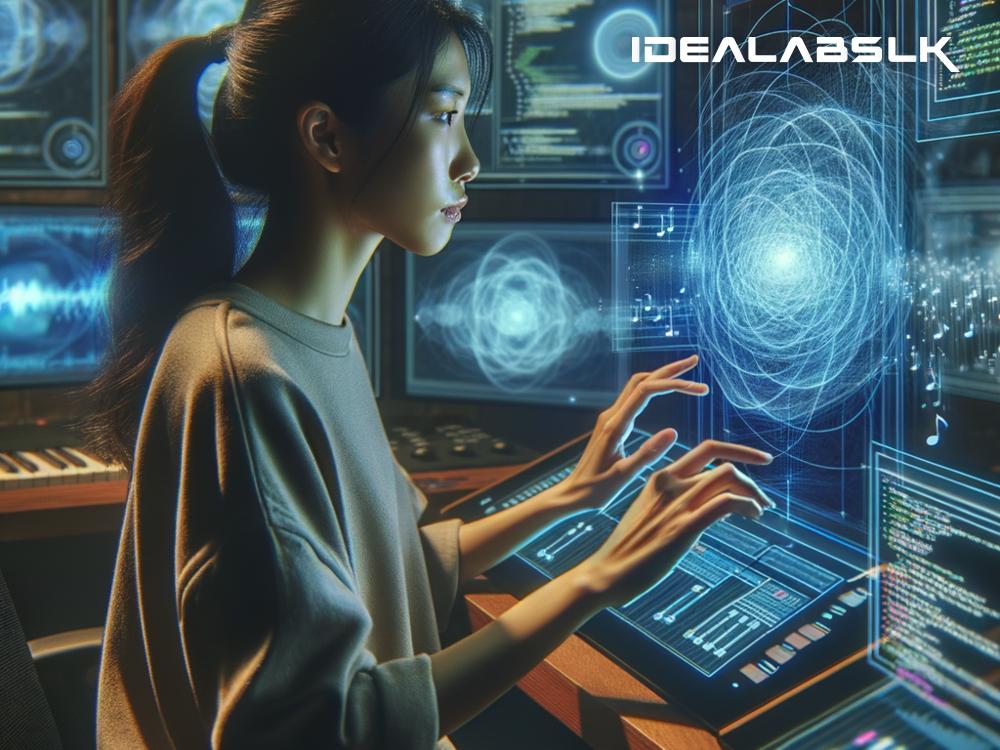AI-Powered Game Music: How Soundtracks Will React to Your Actions in 2025
Imagine stepping into a world where the music changes and adapts not just to the scene you are in, but to every action you take. As we move towards the year 2025, this is becoming a reality in the gaming world thanks to the power of artificial intelligence (AI). AI-powered game music is an innovative development that promises to revolutionize how soundtracks are experienced in video games, making them more immersive and interactive than ever before.
In traditional video games, the soundtrack is usually static. This means that the music is the same every time you play the game. It does not change based on what you do in the game. But with AI, this is all set to change. The music will not just be a background element; it will become a dynamic part of the gaming experience, reacting and adapting to your actions in real-time.
How Does AI-Powered Game Music Work?
The magic behind AI-powered game music lies in the use of smart algorithms and machine learning. These technologies allow the game to understand and interpret your actions and decisions. Based on this understanding, the AI then dynamically generates music that fits the mood, intensity, and pace of the current game situation.
For example, if you’re playing a game and enter a battle scene, the AI can intensify the soundtrack to match the increased excitement and tension. Conversely, if you're exploring a peaceful landscape, the music can shift to more tranquil and soothing tones. The AI can even create thematic motifs that recur throughout the game, associated with specific characters, locations, or story developments, providing a deeper emotional connection to the game.
The Benefits of AI-Powered Game Music
The introduction of AI-powered music in video games has several benefits that enhance the playing experience.
-
Personalization: Every player’s game experience can be unique. The way you play—be it cautiously, aggressively, or with a focus on exploration—can influence the soundtrack, making your journey through the game feel more personal and tailored to your style.
-
Enhanced Immersion: By having music that reacts to your actions, the boundary between game and player blurs. You’re no longer just playing a game; you're a part of the game's world, and the music serves as an emotional bridge that deepens this immersion.
-
Interactive Storytelling: With AI-powered music, the soundtrack becomes an active participant in storytelling. It can foreshadow events, highlight key narrative beats, or underscore the emotional weight of decisions, adding layers to the story without a single word.
What This Means for the Future
As we look towards 2025, the potential for AI in game music is boundless. Developers are just beginning to scratch the surface of what’s possible. In the future, we might see games where the soundtrack not only reacts to immediate actions but also evolves based on long-term choices and character development. Imagine a game that musically remembers your actions, changing its tone as your character grows or as relationships with other characters develop.
Moreover, this technology could extend beyond game soundtracks. AI could potentially be used to dynamically score films or create adaptive music for virtual and augmented reality experiences, opening up new frontiers in entertainment.
The Challenges Ahead
While the promise of AI-powered game music is exciting, there are challenges to overcome. These include technical hurdles related to integrating AI smoothly with game development engines, ensuring the AI-generated music maintains a high quality, and addressing copyright and intellectual property concerns related to AI-generated content.
Additionally, as AI becomes more prominent in creative processes, discussions about the role of human composers in the industry are essential. Finding a balance between leveraging AI capabilities and supporting human creativity will be key.
Conclusion
By 2025, AI-powered game music is set to transform the gaming experience, making soundtracks more immersive, interactive, and personalized than ever before. This innovative use of AI not only opens up new possibilities for game design but also for how we experience music and storytelling in digital spaces. As we move forward, the collaboration between technology and creativity will continue to redefine the boundaries of what’s possible, creating new worlds of experience that are more engaging and emotionally resonant. The future of game music is not just reactive; it’s interactive, and it's a journey we are just beginning to embark on.

